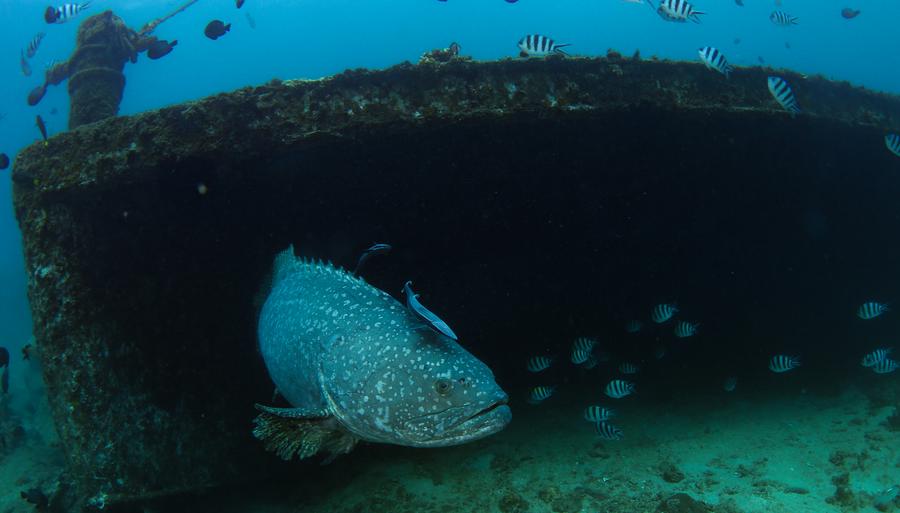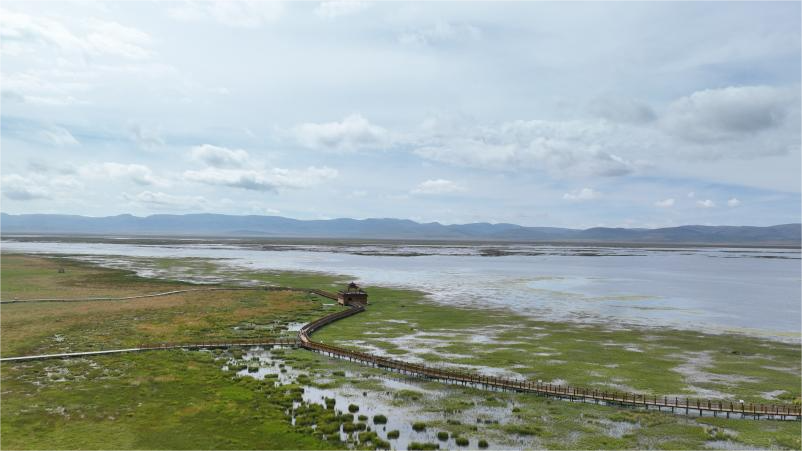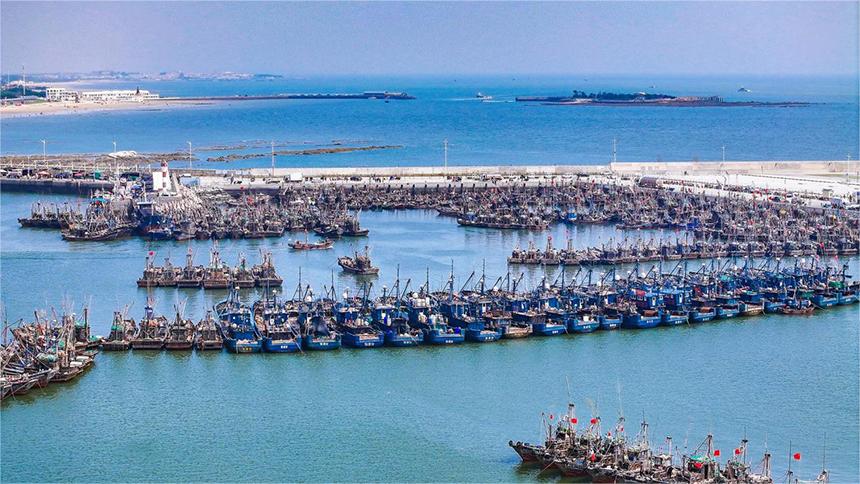Scientists decode "genetic trove" of marine microorganisms

A grouper is pictured in the Wuzhizhou Island's marine ranch in Sanya, south China's Hainan Province, May 17, 2024. (Xinhua/Yang Guanyu)
QINGDAO, Sept. 9 (Xinhua) -- A collaborative team of scientists from China, Britain, and Denmark has constructed a comprehensive global marine microbiome database, demonstrating the potential of marine microorganisms for marine science research and biotechnological and biomedical applications.
The research team, led by BGI-Research, spent five years reanalyzing nearly 240 terabytes of publicly available marine metagenomic data and built a database containing 43,191 metagenome-assembled genomes and 2.46 billion gene sequences. More than 20,000 of these genomes were identified as potential novel species.
The study was recently published in the journal Nature.
This database contains information on marine ecosystems ranging from the Antarctic to the Arctic, from coastal areas to the open ocean, and from the ocean's surface to the 10,000-meter deep hadal zone.
"This study significantly enhances our understanding of the diversity of marine microorganisms, including marine archaea and bacteria," said Fan Guangyi, director of BGI-Research, Qingdao.
Fan added that the study has analyzed the biogeographical distribution patterns of global marine microbial communities, providing new insights into how these microorganisms are distributed across different environments.
The research team also uncovered three new polyethylene terephthalate (PET) plastic-degrading enzymes, one of which can degrade PET plastic film within three days, with the degradation rate reaching 83 percent.
"One gram of this enzyme can degrade 55 plastic water bottles of 500 milliliters each," said Li Shengying, co-corresponding author of the study.
"This advancement will play a positive role in addressing plastic pollution, particularly in achieving green, low-carbon, and sustainable use of PET plastics in China," Li said. "It will also help reduce the reliance of the plastic manufacturing industry on petroleum and lower its carbon emissions."
Earlier research has revealed the tremendous potential of marine microbial diversity in exploring novel gene editing systems, antimicrobial peptides, and other microbial functions.
In this study, the research team explored the database's genetic resources from multiple dimensions, identifying 36 new gene editing systems.
Researchers investigated the application potential of one of these systems, which has proven highly effective for genome editing in all testing scenarios. This highlights its potential as a new tool for basic research and translational medicine development.
In addition, 117 potential new antimicrobial peptides were identified, among which 10 showed notable antimicrobial activity and broad-spectrum efficacy after biosynthesis and testing. This offers a promising new approach to tackling antibiotic resistance.
"Antimicrobial peptides are likely to be employed for the development of entirely new antibiotics or other drugs in the future," Li said.
Building on these results, BGI-Research has partnered with the Hong Kong Polytechnic University to establish a joint research center for further development and commercialization.
Photos
Related Stories
- Chinese scientists discover new gene that regulates lifespan
- Endeavors to grow soybeans in space may bear fruition, says Hong Kong biologist
- New impatiens species discovered in China's Xizang
- Chinese researchers unveil key factors of Cambrian Explosion of life
- Chinese researchers find new vampire squid species
Copyright © 2024 People's Daily Online. All Rights Reserved.









